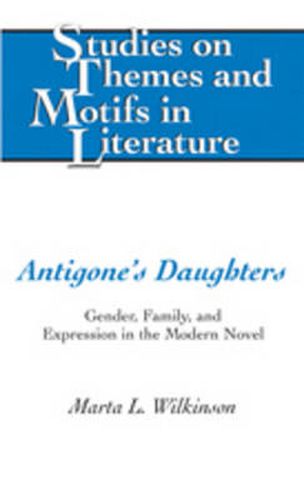Readings Newsletter
Become a Readings Member to make your shopping experience even easier.
Sign in or sign up for free!
You’re not far away from qualifying for FREE standard shipping within Australia
You’ve qualified for FREE standard shipping within Australia
The cart is loading…






Antigone’s Daughters presents various readings of the classical myth of Antigone as interpreted through modern feminist and psychoanalytic literary theories. Topics such as femininity, education, and establishing selfhood amidst the restrictions of the patriarchal society presented by Sophocles provide the foundation for the modern novel. This study serves as a model for the comparative interpretation of literary works of the nineteenth and twentieth centuries including the writings of George Sand (Indiana), Karolina Pavlova (A Double Life), Nikolai Chernyshevsky (What Is to Be Done?), Emile Zola (L'Assommoir and Nana), Maria Luisa Bombal (La amortajada) and Isabel Allende (The House of the Spirits). Each chapter isolates an aspect of Antigone’s struggle within both the public and domestic spheres as she negotiates her independence and asserts her voice.
A valuable tool for the study of modern literature, the universality of Antigone presented in this study prompts the investigation of many classical motifs while providing a thorough study of various national literatures within their own contemporary contexts.
$9.00 standard shipping within Australia
FREE standard shipping within Australia for orders over $100.00
Express & International shipping calculated at checkout
Antigone’s Daughters presents various readings of the classical myth of Antigone as interpreted through modern feminist and psychoanalytic literary theories. Topics such as femininity, education, and establishing selfhood amidst the restrictions of the patriarchal society presented by Sophocles provide the foundation for the modern novel. This study serves as a model for the comparative interpretation of literary works of the nineteenth and twentieth centuries including the writings of George Sand (Indiana), Karolina Pavlova (A Double Life), Nikolai Chernyshevsky (What Is to Be Done?), Emile Zola (L'Assommoir and Nana), Maria Luisa Bombal (La amortajada) and Isabel Allende (The House of the Spirits). Each chapter isolates an aspect of Antigone’s struggle within both the public and domestic spheres as she negotiates her independence and asserts her voice.
A valuable tool for the study of modern literature, the universality of Antigone presented in this study prompts the investigation of many classical motifs while providing a thorough study of various national literatures within their own contemporary contexts.